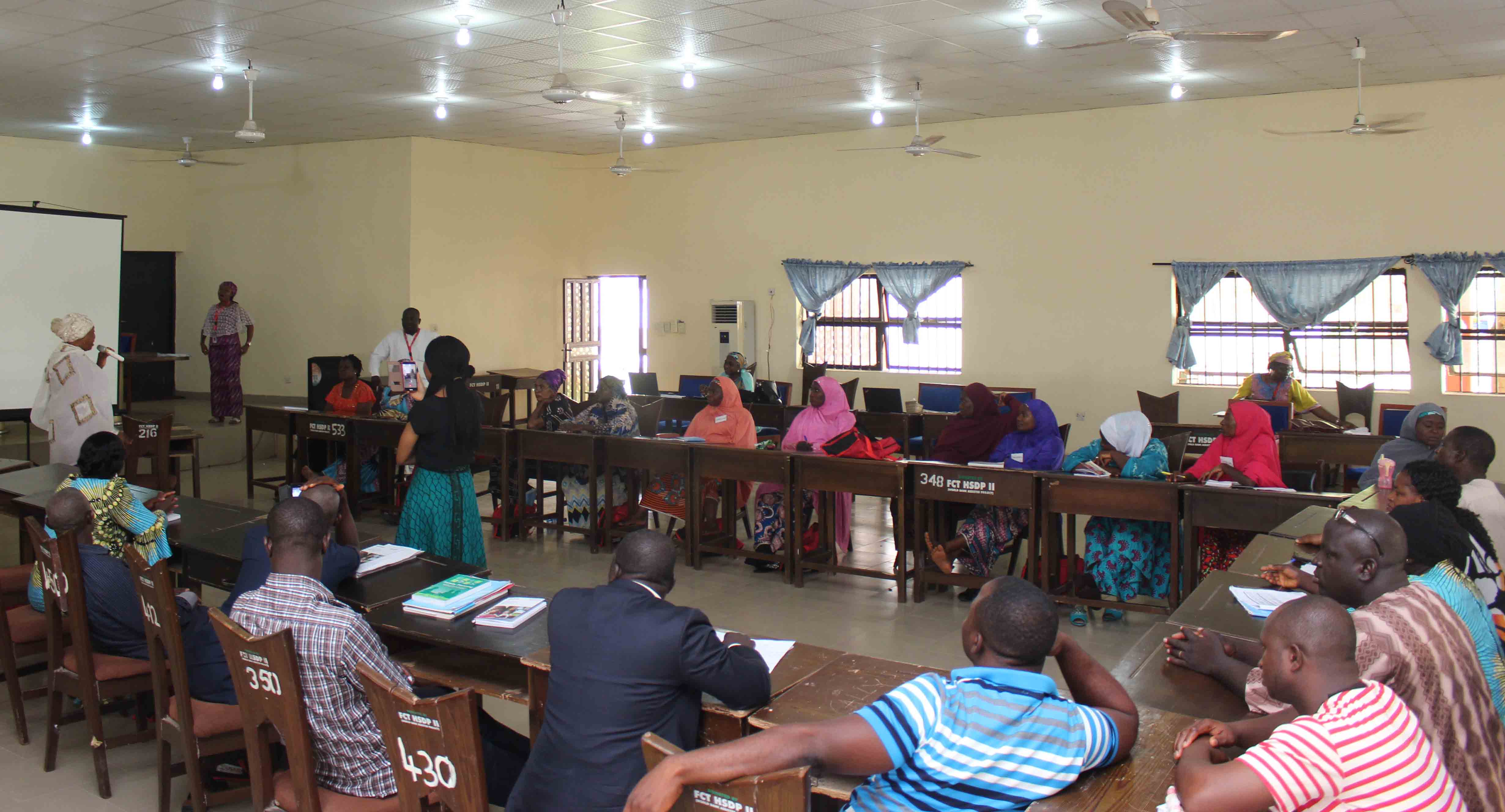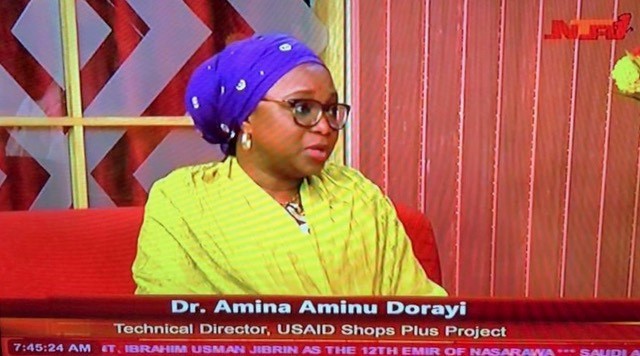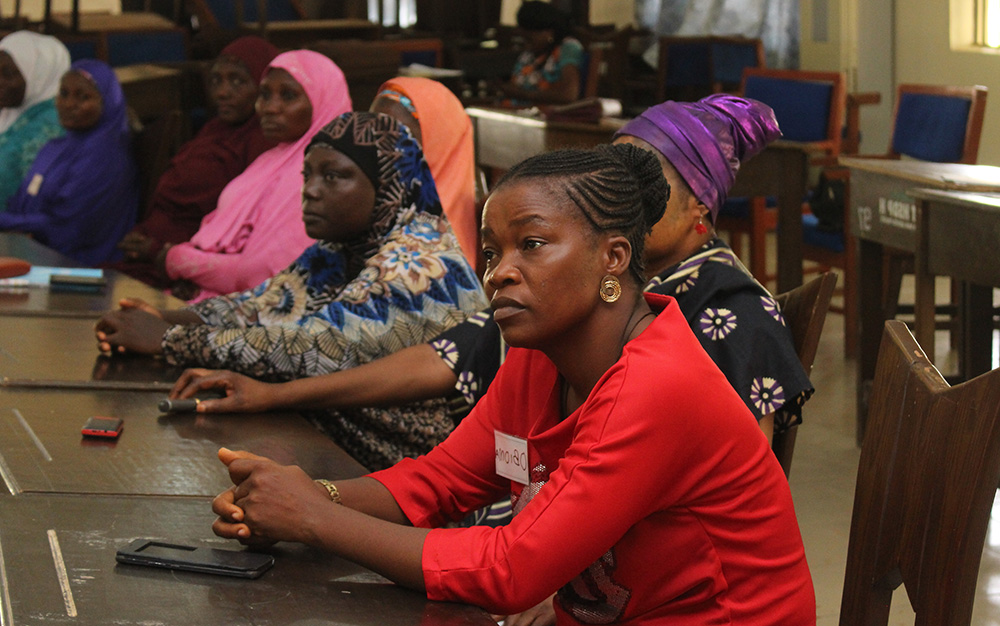Adding a gender lens to training for family planning providers

SHOPS Plus is changing the way providers in Nigeria interact with and counsel their clients when it comes to family planning services. Although quality and access have always been a top priority in the provision of these services, the project is also addressing gender biases by incorporating a gender lens in the existing training curriculum.
“We worked with stakeholders to enhance the family planning curriculum for in-service community health workers with new content on gender dynamics and provider bias,” said Amina Aminu Dorayi, family planning technical director for SHOPS Plus in Nigeria. “The new material was well received by the trainers and participants because it gives them an opportunity to freely discuss gender issues and biases providers often have that affect client uptake of these services. It also helps providers recognize their own gender norms and biases, and gives them an opportunity to reflect on what they learn in the training.”
In a presentation at the Nigeria Family Planning Conference in December 2018 and in a TV interview on Good Morning Nigeria, Dorayi discussed the modules and emphasized the importance of addressing social norms in order to increase family planning use. She also highlighted some of the challenges affecting use and access, which include men acting as gatekeepers and providers having their own bias against family planning.

To ensure that family planning service providers, such as the health workers, acquire the right skills, the project reviewed the national training curriculum for long-acting reversible contraceptives and incorporated supplemental materials to address provider bias, constructive male engagement, and a client-centered informed choice approach to counseling. SHOPS Plus added a gender module that includes values clarification and reflections on gender roles and added male engagement to the counseling module, which touches on couples communication, shared decision making, differences between male and female reproductive health needs, and gender norms. As a result, the providers who took the training gained a new understanding on the importance of gender sensitivity in their work.
“The training helped me to overcome some of my personal biases that affected how I related with young people that come for family planning,” said Usabot Dang, a community health worker from Primary Health Clinic Congo Russia in Plateau state. “The trainers really talked to me about this.”
Female community health workers are not the only participants attempting to address gender issues. Men are also strong advocates for gender equality in family planning method choice and eliminating provider biases.

“Don’t choose for a lady or a couple which family planning method to use, you allow them [to] make the decision,’’ said Pada Gwa, a 50-year-old community health worker in FCT, following the training.
SHOPS Plus will continue to provide follow-up visits to the trained providers to ensure that they have the support they need. These visits are conducted by family planning coordinators from the local government and other service providers who have experience in family planning service provision.
Learn more about our work in Nigeria and how the project is committed to gender equality.